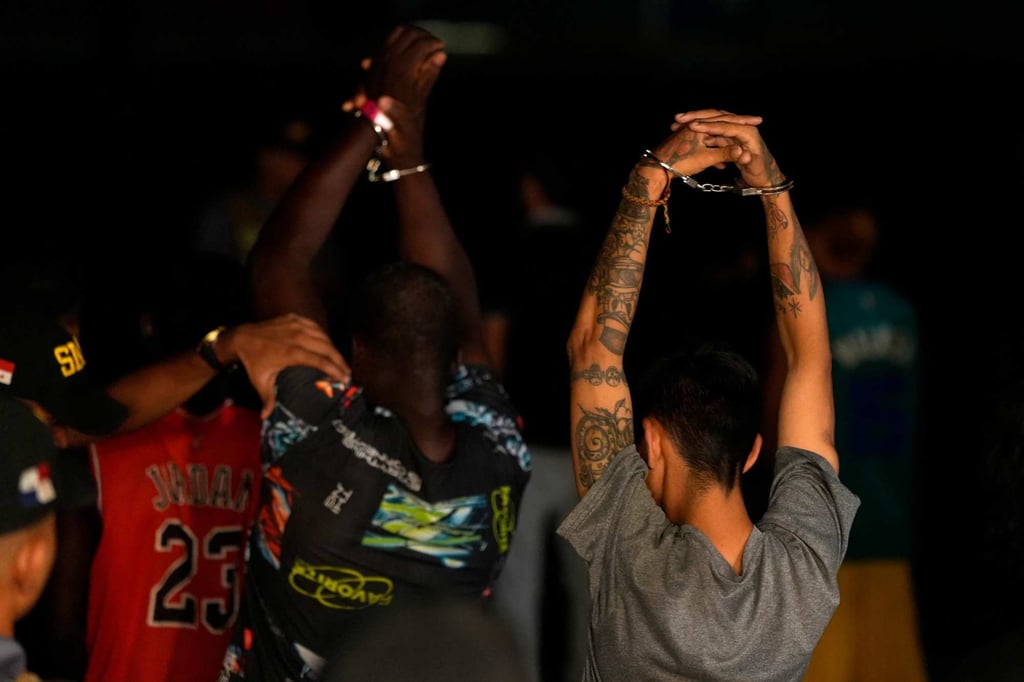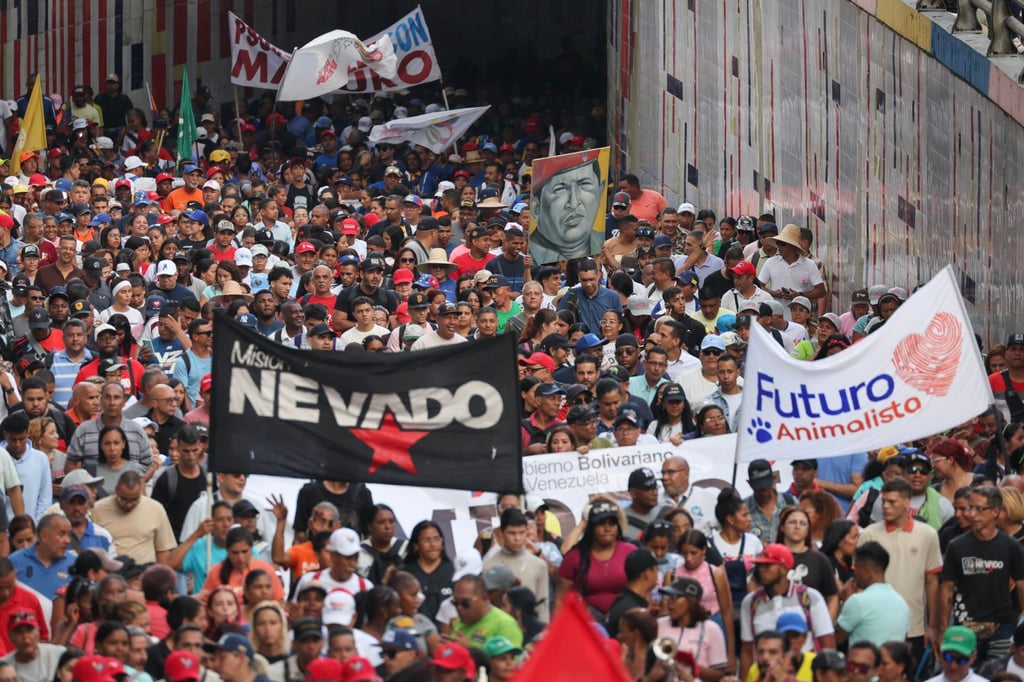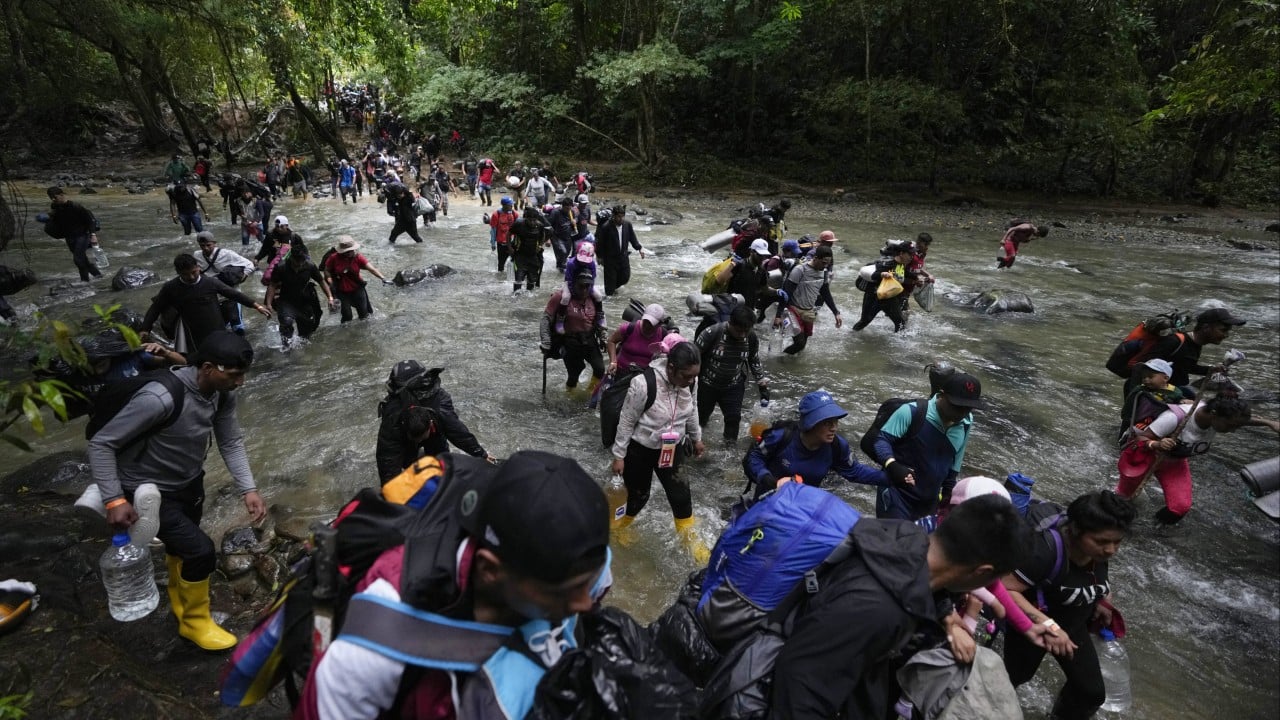The number of migrants walking through the jungles of Colombia and Panama en route to the US has fallen in recent weeks, potentially signalling a further decline in new arrivals at the southern border.
Tighter controls imposed by Panama’s new president and border closures after Venezuela’s disputed election contributed to the drop, according to Elias Solis, president of the Red Cross of Panama, which offers humanitarian and medical aid to those who make the dangerous trip through the Darién Gap. Many arrive dehydrated and suffering from stomach problems, injuries and emotional trauma, with Venezuelans, Ecuadoreans and Haitians the biggest groups.
Crossings of undocumented migrants across the southern US border have plunged since President Joe Biden’s executive order in June limiting asylum claims, while the Darién Gap data signals that numbers may fall further. That could be a boon to the presidential campaign of Democrat Kamala Harris as she seeks to blunt attacks from her Republican rival former president Donald Trump.
Trump has said that the Biden-Harris administration did not do enough to secure the border. Polling in swing states has shown immigration is the No. 2 issue for voters in the presidential election, behind only the economy.
“The reduced Darien numbers are certainly a factor preventing the Republican Party from taking full advantage of the border as a line of attack against Kamala Harris,” said Adam Isacson, who studies US migration policy at the Washington Office on Latin America. “Even if it’s just a temporary situation, that dog isn’t barking as much right now.”

The number of migrants arriving at the US border with Mexico rose to a record 2.5 million in 2023, but dropped this year. Encounters with US agents declined dramatically in June after Biden’s order, and fell further in July.
Panamanian President José Raúl Mulino, who was sworn in on July 1, has closed six of the seven border crossings between Panama and Colombia with barbed wire fences and increased sea patrols in the area, the Red Cross of Panama said in its July newsletter.
The Darien Gap is a stretch of roadless rainforest between Colombia and Panama linking South and Central America. For centuries, it was considered all but impassible. But last year, more than 520,000 people went through it on the way north, according to Panama’s government.
In the year through July, some 216,000 people crossed the jungles of the Darién Gap from Colombia to Panama, according to Red Cross figures.
Venezuelan vote
Still, the Venezuelan election’s long-term impact on immigration isn’t yet clear, though there could be a spike in coming months, the organisation said. President Nicolas Maduro won a third term amid widespread international criticism over the transparency of the electoral process.

“People migrate for different reasons, such as their socioeconomic situation, political persecution or violence in their own countries,” Solis said. “If the borders with Venezuela are opened, there is a high probability the migrant flows will continue.”
Mulino campaigned on a promise to close the Darién Gap, which he said poses threats to national security and Panama’s natural environment. Panama launched a partnership with the US government to repatriate migrants, and the first deportation flight flew to Colombia last week.
The impact of these flights is likely to be small and Panamanian authorities do not have the manpower to effectively monitor the physical barriers at the Darién Gap, such as barbed wire, according to Ariel Ruiz Soto, an analyst at the Migration Policy Institute, a Washington-based think tank. One problem for officials is that it’s not easy to return the migrants they apprehend.
“Going back to Colombia is not only dangerous, but it’s actually difficult for people to do,” Ruiz Soto said. Most of the time, the travellers who make it through the Darién Gap will be allowed to continue on journeys north, according to Ruiz. “It would require a lot more work on the Colombian side to be able to set up some sort of corridor to return people.”


